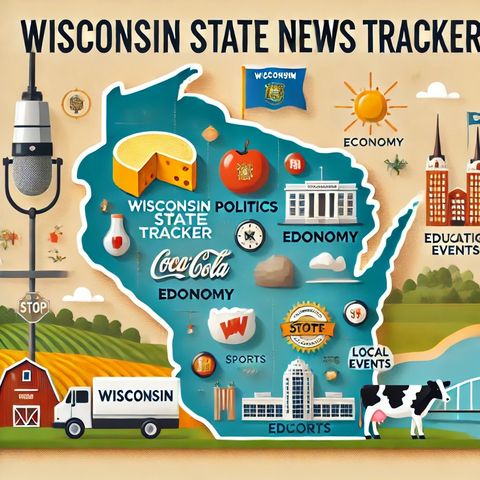16 NOV 2024 · Wisconsin has been at the center of national attention following the recent presidential election, with former President Donald Trump winning the state and thereby securing enough electoral votes to reclaim the White House, according to CBS News projections[3]. This victory marks a significant shift in the state's voting pattern, as Democrats had previously won Wisconsin in every presidential election since 1988, except for 2016 when Trump narrowly defeated Hillary Clinton.
In other political news, Republican Derrick Van Orden won reelection in Wisconsin's 3rd Congressional District, a seat he flipped red in 2022, while Democratic Sen. Tammy Baldwin secured her third term in the Senate, defeating Republican Eric Hovde[3]. These outcomes reflect the mixed political landscape in Wisconsin, where both parties have seen successes and challenges.
On the legislative front, the state has seen significant developments. The Wisconsin Elections Commission recently asked a federal judge to dismiss a lawsuit that sought to block the use of Wisconsin's "MyVote" online voter portal, just days before the November election[5]. This move underscores the ongoing debates over election integrity and voter access in the state.
In local government decisions, the Arrowhead Union High School board has expressed support for legislation banning transgender athletes from school sports, a move that has sparked controversy and debate[5]. This development highlights the ongoing discussions around gender identity and sports participation in Wisconsin schools.
In business and economy, major developments include the impact of the presidential election on vaccine maker stocks. Following Trump's nomination of Robert F. Kennedy Jr., a prominent vaccine skeptic, to lead the Department of Health and Human Services, shares of vaccine makers such as Moderna, Novavax, Pfizer, BioNTech, and GSK closed lower[5]. This move has raised concerns about the potential elevation of anti-vaccine rhetoric during a second Trump term.
On a more local level, the Main Street Action PAC, the political arm of the small business advocacy group Main Street Alliance, won five of the six Wisconsin legislative races it entered with advertising and voter engagement efforts[5]. This success underscores the influence of small business advocacy groups in shaping the state's political landscape.
In community news, education has been a significant focus. Wisconsin voters approved a record number of school referendums and new funding levels in 2024, according to a report by the Wisconsin Policy Forum[5]. This development highlights the ongoing efforts to improve educational infrastructure and funding in the state.
Public safety has also been a concern, with a recent case involving a Wisconsin woman sentenced to prison for straw purchasing a firearm used in a murder-suicide[5]. This incident underscores the need for stricter gun control measures and the importance of addressing firearm-related crimes.
In environmental and weather updates, there have been no significant weather events reported recently. However, the state's clean energy commitments have been at risk, as highlighted by John Imes in a commentary piece for the Wisconsin Examiner[1]. This issue remains a critical concern for environmental advocates and policymakers in Wisconsin.
Looking ahead, Wisconsin is poised to face several challenges and opportunities. The state's political landscape will continue to evolve, with ongoing debates over election integrity, gender identity, and economic policies. The impact of the presidential election on various sectors, including healthcare and education, will be closely watched. Additionally, the state's environmental commitments and efforts to address public safety concerns will remain key issues in the coming months. As Wisconsin navigates these challenges, it will be important for residents and policymakers to engage in thoughtful and informed discussions about the state's future.


